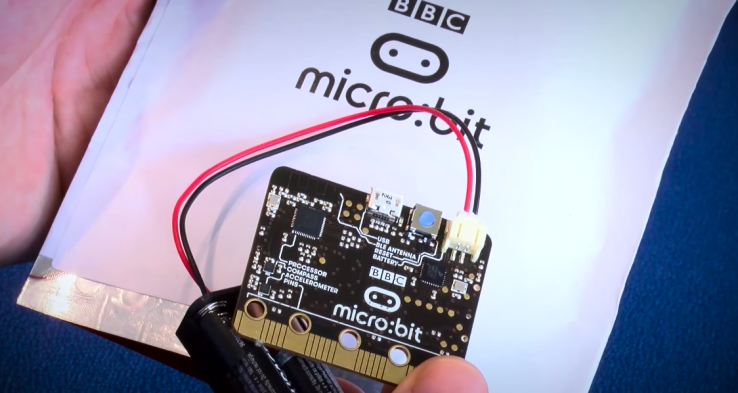The Micro:bit device, a small portable computer aimed to get UK kids interested in programming has finally been delivered to schools in the UK.
Over the next few weeks, about one million units of the devices will be distributed to eleven and twelve year old 7th graders in several schools nationwide.
The launch of the Micro:bit is happening six months after its planned rollout, with the launch date pulled back on two different occasions.
IET Faraday Challenge Leader, Dr Kiera Sewell, has seen kids use the Micro:bit to create simple games, bag alarms, stress level indicators, smart dog collars, door bells for deaf people. And burglar alarms.
The Micro:bit computer which was announced a year ago was masterminded by the British Broadcasting Corporation, BBC.
The idea was conceived when it appeared that British children have been learning only administrative skills in IT lessons at school.
As a result, Programming was included in a revised IT curriculum in UK schools. BBC also decided to launch the Micro:bit, to encourage more children to learn how to code.
However due to the delays, teachers have complained that it’s too late to use the Micro:bit in schools this year. Critics also said focusing on one age group will not make a difference to the UK digital skills shortage.
The Micro:bit is basically a board with a bank of LEDs. It also has a pair of programmable buttons, an accelerometer to detect motion, a compass/magnetometer, Bluetooth connectivity and a selection of input and output rings to link to other devices and sensors.
All these are aimed at offering a toybox device of tech tricks which kids can play around with. The board itself is small enough that it can be incorporated into a wearable design.
According to BBC, the design of the device will be licensed to firms wanting to make additional units via a non-profit organization after they have been delivered to schoolkids.
It also said the Micro:bit will be made available to buy from a range of retailers after the rollout. Money generated from any commercial sales will then be used to “further encourage as many people as possible to join the coding revolution”, BBC said.
The BBC hopes this initiative will start a domino effect. That more kids accessing coding will eventually move into complex programming and become the sort of graduate programmers that British industry can celebrate rather than complain about.
This is a lesson to Nigeria and other African nations who want their children to be leaders in IT tomorrow.



